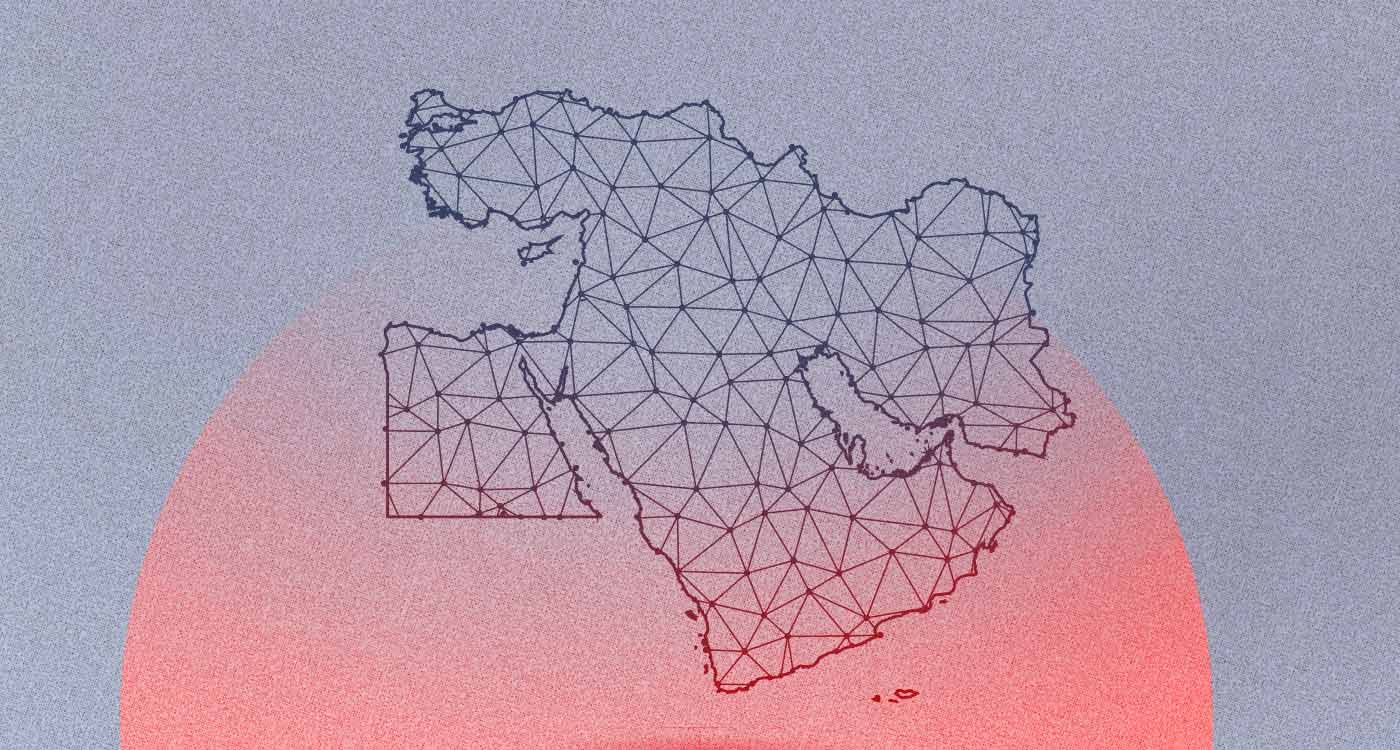- Home
- Middle East
- The Demise of Self-Fulfilling Prophecies

©This Is Beirut
What’s dumbfounding is the equivocation of Hamas and Hezbollah toward the projected normalization initiated by President Trump. Nothing is new, since their obstructionism stems from ideological and strategic considerations. Whatever mediations are attempted by the U.S. and its associates, the state of mind within both formations is not inclined toward accommodation or a negotiated peace treaty. No negotiated solution is seriously considered as a sequel to the Abraham Accords. This ideological obstructionism caters to Iran’s politics of subversion; unless the Islamic autocracy abates, the entire region will remain swayed by the destructive influence of Hamas and Hezbollah and their embedded conflict dynamics.
Hamas is ostensibly waffling while pursuing a terror campaign that indiscriminately targets its various opponents. It has no intention of disarming or relinquishing its totalitarian control over a district transformed into a phantasmatic entity catering to the whims of wokism and its leftist modulations. Gaza has become an ideological abstraction detached from human realities—a mere object instrumentalized by this Islamist murderous dystopia and its attendant power politics. How can a conflict-resolution dynamic proceed if this sociological entity has no ability to speak for itself, morally expropriated and annexed to clashing political agendas?
The refusal to disarm conveys the rejection of normalization and the insistence on maintaining ideological extraterritoriality and its geostrategic platforms. Otherwise, the statements of its competing leaderships converge around a common and overriding objective: the perpetuation of the ideological bubble at the expense of geopolitical and human realities. The people of Gaza have no reality other than that imposed by their psychopathic hijackers and the delirious imaginary of their leftist cohorts. There is no chance for genuine negotiation with this terror group and its Islamist political handlers—specifically Iran, Qatar, and Turkey.
The tragic case of Gaza encapsulates the everlasting impasse of Palestinian militancy, which has consistently failed, throughout the history of this conflict, to engage in the basics of true negotiation—or, when it has, systematically failed to uphold its stipulations, starting with the UN resolution of 1947 and ending with the Oslo Accords (1993–1995) and their derivative proposals. This intentional obstructionism is inevitably reviving Jewish radicalism within Israel and driving the dynamics of polarization further ahead. This posture equates to the deliberate sabotaging of the ongoing truce and foreshadows the resumption of hostilities.
Hamas is stalling the incipient peace dynamics and running athwart their international endorsement by the world community at the Sharm el-Sheikh Summit (October 13, 2025). Humanitarian and political realities are readily discounted for the sake of the human-shield strategy and its disastrous outcomes. Current political developments are a bad omen, and the likelihood of a final showdown to end Hamas’s domination over the district seems to be growing. One can hardly expect Israel to adjust to Hamas’s usual political bluff—namely, exploiting the condensed alienations of the Gazans and humanitarian tragedies to serve its criminal ends. The Trump administration’s ultimate attempts to salvage the micromanaged peace process have hit the concatenated walls erected by this terrorist dystopia.
The same scenario holds true in the case of Lebanon, where Hezbollah seeks to perpetuate its foreclosures, prevent the rehabilitation of a functioning state, and undermine the constitutionality of political life. Hezbollah remains in command of the political levers within the Shiite community, and its domination tropism continues to define its mainstream political expression. The Shiite opposition is still unable to build a solid counter-movement. The possibility of political normalization is hobbled, and conflict dynamics are setting in once again. The chances of domestic containment are dwarfed by the driving force of Iranian power politics within the Shiite community.
Hezbollah’s extraterritoriality is reaffirmed and diligently at work, catalyzing the levers of political subversion within the Palestinian camps, among Islamists, and through their masterminding power players. Hezbollah is betting on the reactivation of civil war, the institutionalization of chaos, and the recolonization of state institutions through the Deep State it has created over the past two decades. The new executive, which was presumably poised to bracket out these extraterritorial foreclosures, has proven disappointing despite the goodwill displayed by some of its members.
The jockeying and double-speak of the executive are counterproductive and ultimately unconvincing. The positions of certain members of the cabinet betray constitutional stipulations and consociational mandates. A simple retrospective of Tarek Mitri's statements is quite illustrative in this regard.
The major drawback of the Salam government remains its inability to uphold, in practice, the principled political commitments enunciated in the inaugural governmental address and the various decrees stipulating the urgency of decommissioning Hezbollah and its acolytes. The political intricacies of the Lebanese scene reflect its abiding ambiguities and systemic deficits when it comes to upholding a hypothetical common national narrative, enforcing territorial sovereignty, and eradicating the various forms of political and legal extraterritoriality.
Both Hamas and Hezbollah are mischievous players buying time and trying to outmaneuver their nemeses. The adumbrated scenarios of Sharm el-Sheikh may soon turn awry, and a new cycle of violence is in traction. It appears that a new configuration can emerge only after the destruction of Iran’s regional platforms and the rise of alternative narratives in a region that has overwhelmingly failed to generate the semantics of a new era or to address the challenges of a failed Arab and Muslim modernity.
Read more




Comments